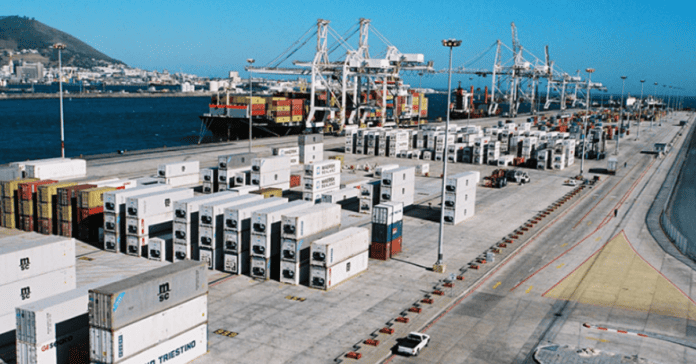Cape Town Mayor Geordin Hill-Lewis has welcomed the Port of Cape Town’s inclusion in government’s Request For Information (RFI) process to test private sector appetite for partnerships on ports and freight rail lines.
‘We are relieved to see the Port of Cape Town’s inclusion in government’s testing of market appetite for private sector involvement. The City has been making this case to national government for some time, and I am grateful to Minister Barbara Creecy for following through on her commitment. This is a positive step towards enabling the level of infrastructure investment and expertise needed to co-run the port successfully. According to the World Bank, Cape Town port is the least efficient in the world, and is a real handbrake on the regional economy and job creation. We need to urgently see private investment and management in the Cape Town port to release this handbrake and speed up job creation in Cape Town.
‘There is huge potential for job-creating economic growth if we can establish our port as a regional shipment hub of choice and turn its reputation around as one of the worst in the world for inefficiency. We are encouraged by government’s short deadline of August 2025 to enter into the formal procurement phase for private partners, and the Development Bank of Southern Africa’s involvement in setting up the coordinating unit to get private partnerships done. We must make sure these timelines are not delayed,’ said Mayor Hill-Lewis.
Research from the Western Cape Department of Economic Development and Tourism indicates that private sector participation at the Port of Cape Town could result in an additional R6 billion in exports, the creation of approximately 20 000 jobs, and over R1,6 billion in additional tax revenues within five years.
Mayoral Committee Member for Economic Growth, Alderman James Vos, said major infrastructure investment is needed to reduce the impact of wind on port operations. This has been a key concern expressed by business leaders during the City’s industry engagements.
‘When the port is unable to operate sufficiently, exporters are forced to divert their goods to other ports in Durban, Gqeberha and elsewhere at huge costs. The private sector has the services and the expertise and have shown they are willing to assist as much as possible. We will be closely monitoring the RFI process, which we hope will lead to the full-scale joint running of the Port with private partners, as well as a major infrastructure investment boost. The City stands ready as a partner to expedite any infrastructure investment within our local government purview,’ said Alderman Vos.















